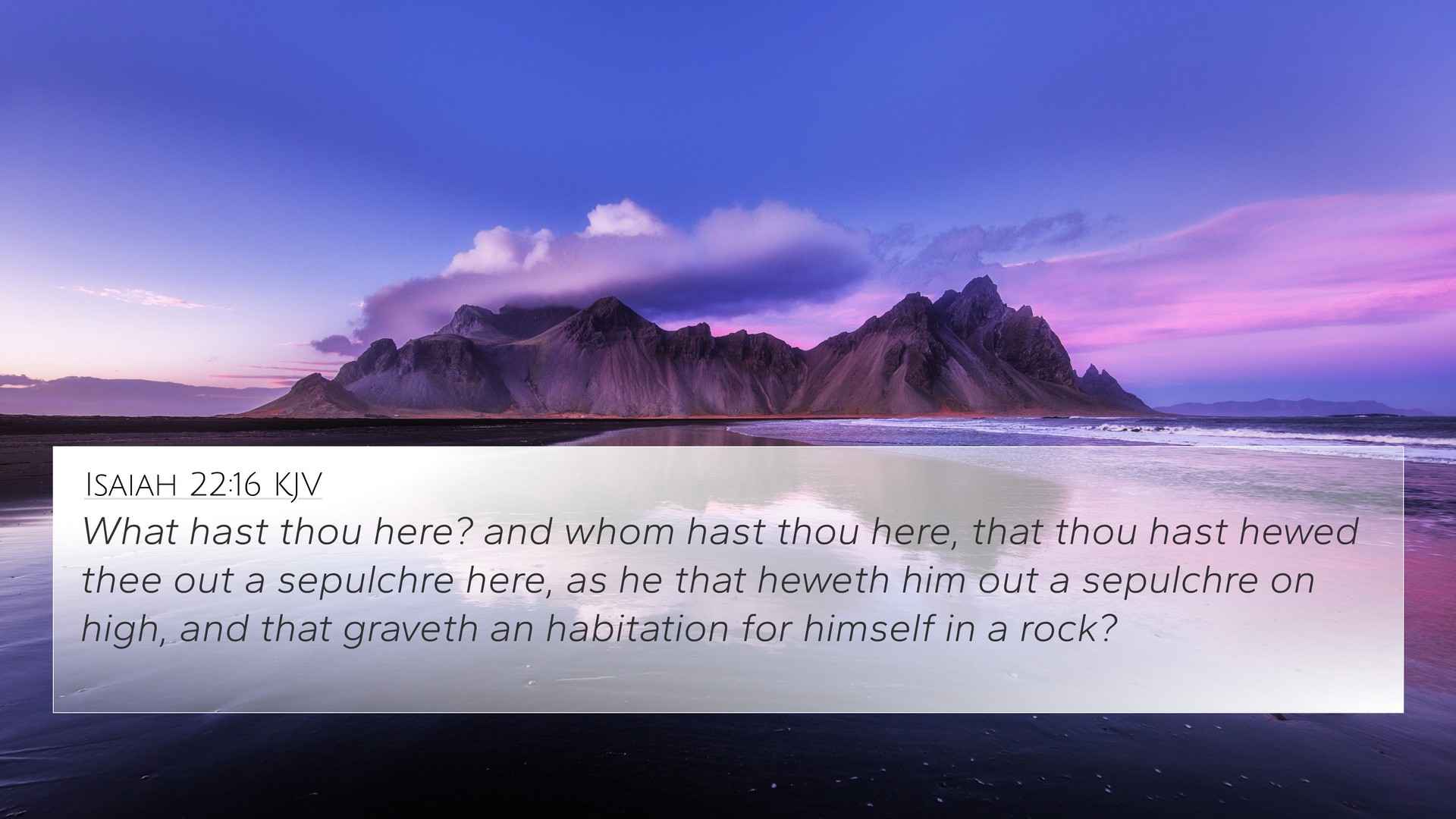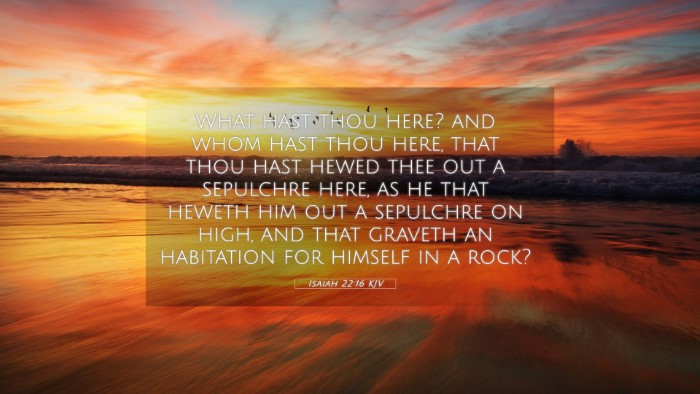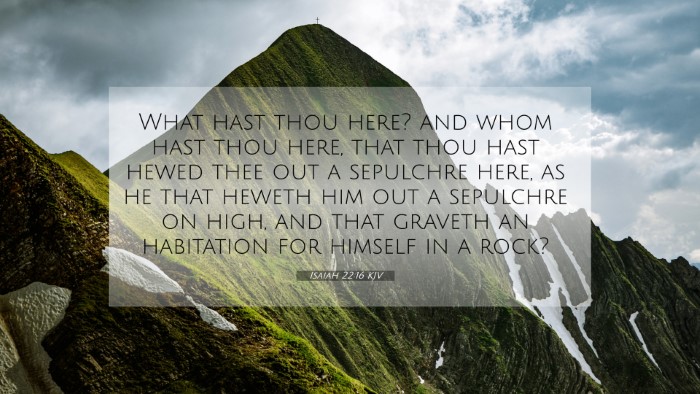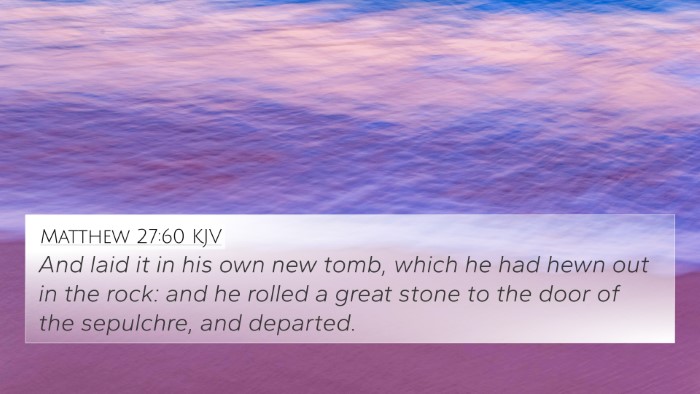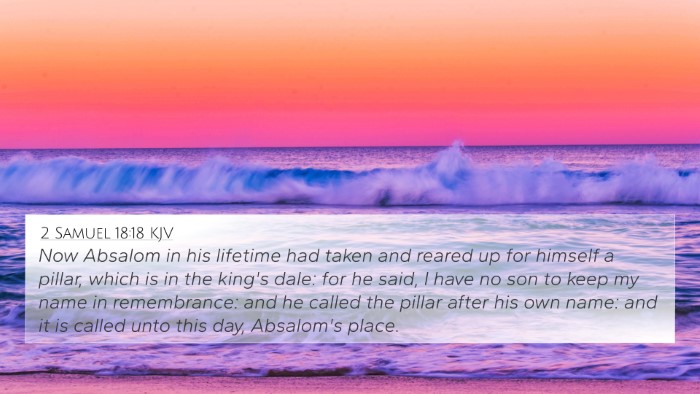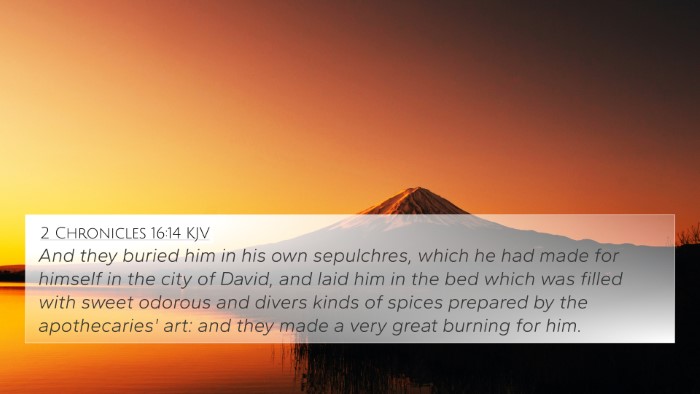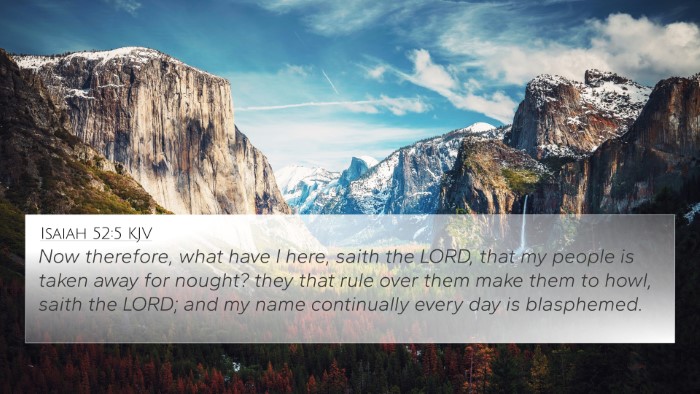Understanding Isaiah 22:16
Isaiah 22:16 reads as follows: "What hast thou here? and whom hast thou here, that thou hast hewed thee out a sepulchre here, as he that heweth him out a sepulchre on high, and that graveth an habitation for himself in a rock?" This verse is significant in the context of God's judgment and the prophecy against the people of Jerusalem.
Verse Context and Interpretation
This verse is addressed to Shebna, the steward of the king who is condemned for his pride and presumptive actions in preparing an elaborate tomb for himself. The question posed in this verse implies a rebuke, emphasizing the futility of Shebna's endeavors in light of coming judgment.
Insight from Commentaries
-
Matthew Henry:
Henry points out that Shebna's actions reveal a misguided sense of security and a desire for legacy, illustrating the folly of seeking honor in worldly achievements while ignoring spiritual decay. Shebna’s tomb, chiseled into the rocks, signifies his arrogance and his misplaced priorities.
-
Albert Barnes:
Barnes emphasizes the rhetorical nature of the questions, underscoring God's disapproval of Shebna's earthly ambitions at a time when the nation faced spiritual crisis. He elaborates on the symbolism of tombs, linking them to mortality, and illustrating that worldly honor does not equate to divine favor.
-
Adam Clarke:
Clarke notes that the verse is an admonition against self-aggrandizement. He argues that Shebna's concern for his place of burial serves as a stark reminder of mortality and the ultimate futility of human pride in contrast to divine judgment.
Thematic Connections
This verse can be cross-referenced with several other Biblical passages that discuss themes of pride, judgment, and the insignificance of earthly pursuits in the face of divine authority:
- Proverbs 16:18 - "Pride goes before destruction, and a haughty spirit before a fall." This emphasizes the futility of Shebna’s pride.
- Luke 12:16-21 - The parable of the rich fool illustrates the folly of laying up earthly treasures and neglecting spiritual wealth.
- Ecclesiastes 2:18-19 - Reflects on the vanity of labor and the inevitability of leaving one’s work to others.
- Matthew 6:19-21 - Teaches about storing treasures in heaven rather than on earth.
- Jeremiah 9:23-24 - A warning against boasting in wisdom, might, or riches.
- Isaiah 30:1-3 - Discusses the waywardness of the people and reliance on human strength rather than divine guidance.
- Psalm 39:5 - A reminder of the fleeting nature of life and the brevity of human existence.
Applications and Reflections
The message conveyed in Isaiah 22:16 can guide readers in their spiritual lives, prompting reflection on personal priorities and the nature of true legacy. It encourages believers to assess where their focus lies—whether on eternal matters or temporary earthly gains. Such introspection can foster growth and deeper understanding of God’s purpose.
Cross-Referencing Tools and Resources
For those interested in profound study, utilizing Bible cross-reference guides and Bible concordances can illuminate connections between various scriptures. Some tips include:
- Use a Bible concordance to find keywords related to your verse of interest.
- Apply a cross-reference system to see related themes across both Old and New Testaments.
- Engage in cross-referencing Bible study methods to gather deeper insights into contextual connections.
- Explore Bible reference resources for comprehensive studies that help in understanding themes across scripture.
Conclusion
This examination of Isaiah 22:16 encapsulates vital truths about human nature, pride, and divine judgment. The combined insights from public domain commentaries contribute to a fuller understanding of scripture, inviting readers to explore the rich tapestry of Biblical teachings through thematic connections and cross-referencing.
